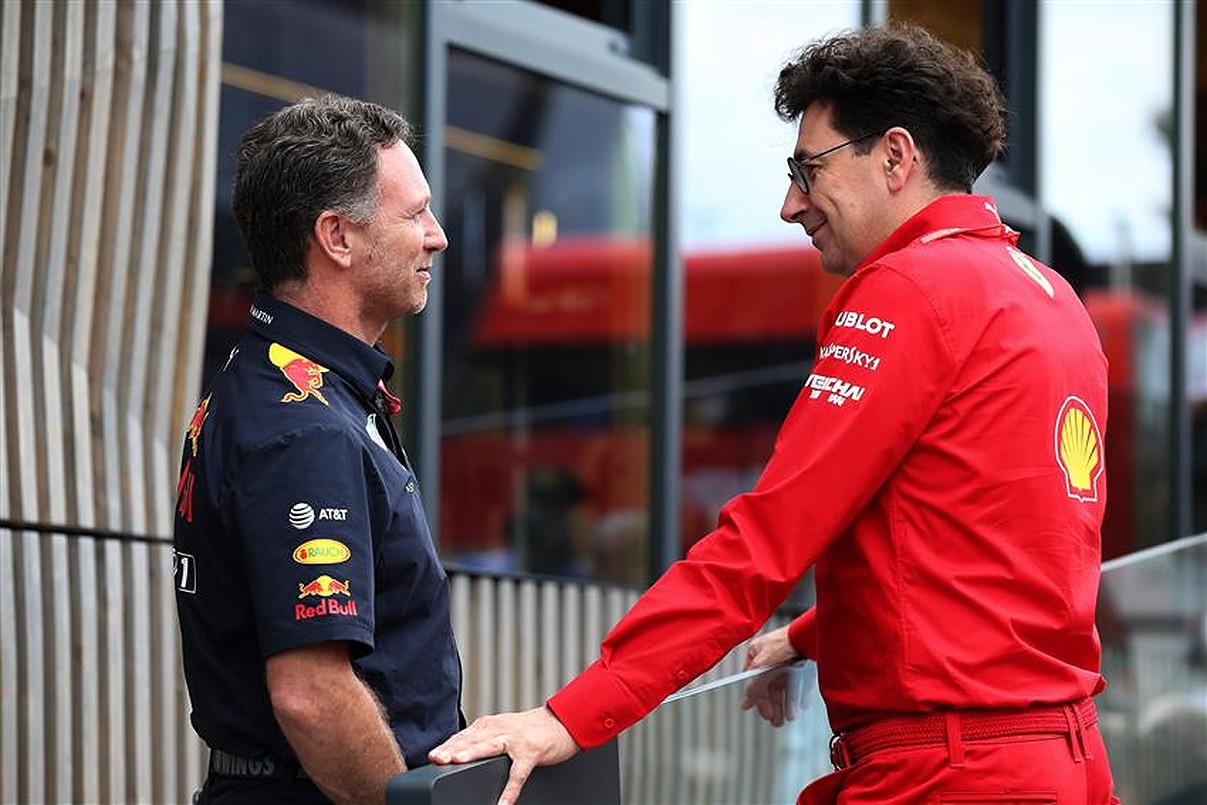FIA head of single-seaters technical matters, Nikolas Tombazis, has declared that engine performance up and down the grid is relatively uniform after the introduction of the freeze.
The engine freeze is one of many alterations made to the technical regulations this season, with an E10 fuel blend – made up of 90 percent fossil fuels and 10 percent ethanol – brought in to help Formula 1’s sustainability push.
The pinnacle of motorsport is aiming to become carbon neutral by 2030, and another part of this ambitious plan is to cease development on the power units.
READ: Tost details how Vettel and Verstappen’s early years in F1 differ to Tsunoda’s debut season
ICE development has already been suspended until the end of 2025, and electrical components will also have a freeze imposed on them halfway through the 2022 season.
Ferrari’s engine and the Honda-manufactured Red Bull power unit have looked especially strong thus far this season.
The Red Bulls were around 11kph faster than Mercedes on the straights in Saudi Arabia, while Ferrari were noted as the third quickest in the flat-out sections ahead of the Renault-powered Alpine cars.
It must be emphasised that part of these deficits relate directly to set-up; Ferrari ran a significantly higher downforce setup in Jeddah, while fundamental flaws in Mercedes’ chassis and floor is what is ultimately costing them performance.
Subtracting aerodynamic efficiency from the equation, Tombazis calculates that every manufacturer on the grid is operating at roughly the same level.
“None of the four manufacturers have problems at the moment, the performance is similar,” he told La Gazzetta dello Sport.
He confirmed that there is an allowance for any manufacturer that has been struggling for reliability in the interests of fairness.
READ: ‘Completely wrong’: Binotto fires back at claim Ferrari had unfair advantage on 2022 car
“When we discussed introducing the freeze, we determined that, if one was in difficulty, everyone would engage in good faith to discuss how to solve the problem, perhaps allowing for some development. There is no interest in sentencing someone to be left behind for four years,” he added.
Freezing developments on any components for a long period of time is unusual, but Tombazis reiterates the ecological responsibility that F1 has.
“It’s not ideal to freeze engines for a long time, but we had to do it because it would have been unsustainable for the manufacturers to develop these units and the ones that will be introduced in 2026,” he explained.

